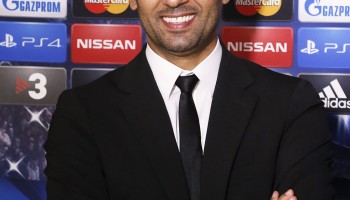That charge slaps a US$10,000 fine and a two-year ban on anyone found to have made “public statements of a defamatory nature” toward FIFA and FIFA officials.
Meanwhile, “bribery” can now only be prosecuted within ten years of its commission--a move some say will allow players and officials to dodge a ban. Previous codes of ethics did not include a time limit for prosecuting corruption.
“This will tamp down criticism of all kinds, which is presumably what FIFA is hoping for,” said a former FIFA governance committee member Alexandra Wrage to The Associated Press of the “defamation” charge.
FIFA has been plagued with accusations of corruption in recent years. A senior official is alleged to have taken a $1 million bribe to support Qatar’s 2022 World Cup bid.
Meanwhile, its new president, Gianni Infantino, appeared in the Panama Papers, has been the subject of several ethics complaints, and put a $10,000 mattress for personal use on a FIFA credit card.
FIFA media spokespeople told OCCRP that media reports about the revised code of ethics were “inaccurate.” They also sent a statement which said that the word “corruption" had been taken out to ensure “language clarity” in the English, Spanish and German versions.
“The Ethics Committee believes that ten years... is a sufficient period of time in which to complete the investigation in cases of serious infringements,” said the statement referring to the new time limit on prosecuting bribery.
“This change will bring more legal certainty to the world of football by ensuring that potential infringements to the code are dealt with in a swift manner,” the statement added.






